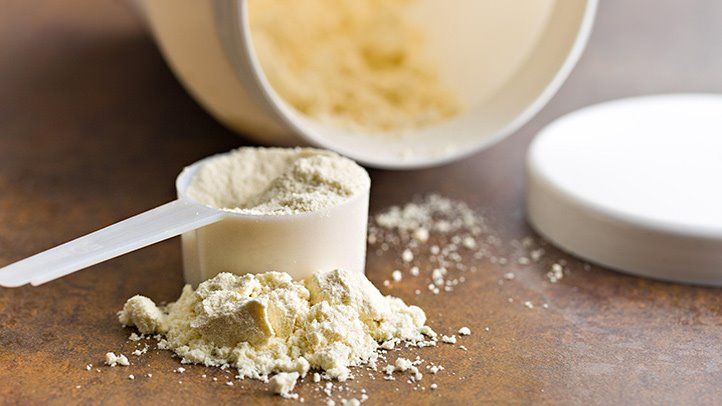Creamed Corn Carbs: Is Creamed Corn Keto-Friendly?
Creamed corn is a popular side dish, especially at barbecues and potlucks. But is creamed corn keto-approved? With corn being a starchy vegetable high in carbs, what is the carb count of creamed corn? In this article, well take a close look at the nutritional profile of creamed corn and how many net carbs it contains per serving.
What is Creamed Corn?
Creamed corn is made by pulping fresh sweet corn kernels off the cob and mixing them with milk or cream, salt, and sometimes sugar. Additional ingredients like flour or cornstarch may be used as thickeners. The pureed corn and liquid mixture is then briefly cooked until thick and creamy.
Creamed corn has a smooth, porridge-like texture and rich corn flavor. It can be served as a savory side dish, used to top casseroles or tacos, or incorporated into recipes like corn pudding. Both homemade and canned varieties exist.
Nutrition Facts for Canned Creamed Corn
The nutrition facts for a standard 1/2 cup serving (123g) of canned creamed corn are:
- Calories: 178
- Fat: 8g
- Carbohydrates: 24g
- Fiber: 2g
- Sugars: 6g
- Protein: 3g
The biggest thing to note is the 24g of carbs, which is quite high per serving. However, with 2g of fiber, the net carbs come out to 22g per 1/2 cup serving.
Nutrition Profile of Homemade Creamed Corn
When made from scratch at home, the nutrition facts for creamed corn can vary based on ingredients used. However, a typical 1/2 cup serving of homemade might contain:
- Calories: 180
- Fat: 12g
- Carbohydrates: 16g
- Fiber: 2g
- Sugars: 4g
- Protein: 3g
Going by these nutrition stats, a 1/2 cup of homemade creamed corn would have 16g total carbs and 14g net carbs after subtracting fiber. Results can vary, but homemade versions may be slightly lower in carbs than canned.
Are the Carbs in Creamed Corn Complex or Simple?
The carbohydrates in creamed corn are a mix of complex and simple carbs. Corn kernels are mainly starch, a complex carb. But creamed corn also contains some natural sugars from the corn that are simple carbs.
Complex carbs are made of longer chains of glucose molecules, while simple carbs are shorter chains. The starch in the corn counts as a complex carb, while the small amounts of fructose and sucrose from the corn kernels are simple carbs.
Metabolic Effect of Creamed Corn Carbs
What does this combination of complex and simple carbs mean for your blood sugar levels? In general, complex carbs are digested more slowly and have less impact on blood sugar than simple carbs.
Yet blending the starchy corn kernels into a creamy liquid mixture allows for faster digestion. So creamed corn likely has a moderate effect on blood sugar rather than a minimal impact you might expect from high fiber whole corn kernels.
Those with diabetes should be aware of creamed corn's carbohydrate content and portion sizes to manage blood sugar response. About 1/4 cup serving may be suitable when accounting for other carbs in a meal.
Creamed Corn in Comparison to Whole Corn
How does creamed corn compare nutritionally to regular whole kernel corn? Here's a look:
- 1/2 cup creamed corn: 22g net carbs
- 1/2 cup boiled corn kernels: 15g net carbs
Per serving, creamed corn has a higher carb count than an equal portion of plain boiled corn. Blending the corn into a puree makes it easier to digest, increasing the net carbs. The additional milk, cream, or other ingredients also boost the carbs in creamed corn.
Is Creamed Corn Keto-Friendly?
The standard ketogenic diet limits net carbs to 20-50g per day. With 22g net carbs in just 1/2 cup, creamed corn would use up a significant portion of the daily carbohydrate allowance.
Those following a strict keto diet would likely want to avoid creamed corn, or only have a couple tablespoons worth occasionally. There are lower-carb vegetable side dish options like roasted broccoli or cauliflower mash.
However, creamed corn may be able to fit into a more moderate low-carb diet with room for up to 100g net carbs per day. Pairing a sensible portion with a protein like grilled chicken can help balance out the carb impact.
Tips for Reducing the Carbs in Creamed Corn
If you want to enjoy creamed corn more regularly while limiting carbs, here are some tips:
- Substitute full-fat coconut milk for half the dairy
- Skip added sugars or replace with low-carb sweetener
- Avoid thickeners like cornstarch or flour
- Focus on fiber-rich homemade versions
- Portion at 1/4 cup or less per serving
Modifying traditional creamed corn recipes can result in a lower-carb version that could potentially fit a keto diet when eating in moderation. But even with adjustments, it remains one of the higher-carb corn options.
Health Benefits of Creamed Corn
Despite being high in carbohydrates, creamed corn can still offer some nutritional value. Here are some of the main health benefits of creamed corn:
- Fiber - Provides 2-3g per serving for digestive and heart health.
- Vitamin C - Contains this essential antioxidant vitamin.
- Lutein and zeaxanthin - Corn has these carotenoids for eye health.
- B vitamins - Contains small amounts of thiamin, niacin, folate and pantothenic acid.
- Potassium - An electrolyte mineral; 236mg per cup.
When eating in sensible portions, creamed corn can provide valuable vitamins, minerals, antioxidants and fiber as part of a balanced diet.
Frequently Asked Questions
Is sweet corn low carb?
No, all varieties of corn are high in net carbs. Sweet corn has around 15-17g net carbs per half cup. Creamed sweet corn is higher in carbs due to added ingredients.
Is creamed corn Whole30 approved?
No, creamed corn is not allowed on the Whole30 diet. The added dairy and potential thickeners exclude it from the program's rules. Plain corn kernels are permitted, but not creamed versions.
Is creamed corn gluten-free?
Plain homemade creamed corn without added thickeners is gluten-free. But some canned versions may contain flour, wheat starch or other gluten ingredients. Check labels carefully if avoiding gluten.
Does creamed corn have sugar?
Canned creamed corn can contain added sugar. Homemade creamed corn gets trace sugars from the corn kernels themselves. Added sugar should be limited on low-carb diets.
Is corn a vegetable or grain?
Corn is botanically considered a grain as it is a cereal crop that produces kernels on ears. However, from a culinary perspective, corn is prepared and eaten as a vegetable.
FAQs
Is homemade creamed corn healthier?
Yes, homemade creamed corn is usually healthier than canned versions since you control the ingredients. Avoid adding sugar and heavy cream for the healthiest results.
What's the difference between creamed corn and corn pudding?
Creamed corn is a savory side made from pureed corn and liquid. Corn pudding has eggs, cornmeal and baking to make a sweet custard-like casserole.
Can you freeze creamed corn?
Yes, creamed corn freezes well for 3-6 months. Let it cool completely before freezing and leave headspace in containers for expansion.
Is creamed corn dairy-free?
Traditional creamed corn contains dairy like milk or cream. For a non-dairy option, replace the dairy with coconut milk or cashew cream.
Disclaimer: This article is for informational purposes only and does not constitute medical advice. Always consult with a healthcare professional before starting any new treatment regimen.
Related Coverage
Get the scoop on eating cabbage and coleslaw on a keto diet. Learn how to make low-carb coleslaw recipes and enjoy the health benefits of cabbage....
Want ricotta on keto? With 3 grams net carbs per ounce, ricotta can be challenging for very low carb diets. Learn strategies to fit it in or substitute better options like cottage cheese....
Olives can be included in a ketogenic diet due to their low net carbs, high fat content, and health benefits. But pay attention to sodium, calories, and tolerances....
Oranges are too high in carbs for keto. Learn why they don't fit into a ketogenic diet and find healthier low-carb alternatives to get your vitamin C....
Avocados are the perfect keto food with healthy fats, low carbs, and nutrients. Learn tips for using avocados on keto in smoothies, guacamole, salads, snacks, and more....
Keto Activate powder by Ancient Nutrition provides exogenous ketones to help boost ketosis. Learn about the ingredients, benefits, side effects and proper usage....
An average ear of corn contains about 19-21 grams total carbs and 15-17 net carbs. Learn whether corn fits into a low-carb, keto diet based on its carb count....
Get this complete high protein, low carb vegetarian diet plan including a shopping list, weekly meal plan, snacks, and supplement recommendations to achieve ketosis....
Prepare for disaster scenarios by stockpiling the best keto survival foods like pemmican, bone broth, coconut oil and cured meats to stay nourished in ketosis if SHTF....
Discover how to make delicious low-carb, high-fat desserts like chocolate mousse, coconut cookies, cheesecake, and more with these keto-approved ingredients and recipes....









